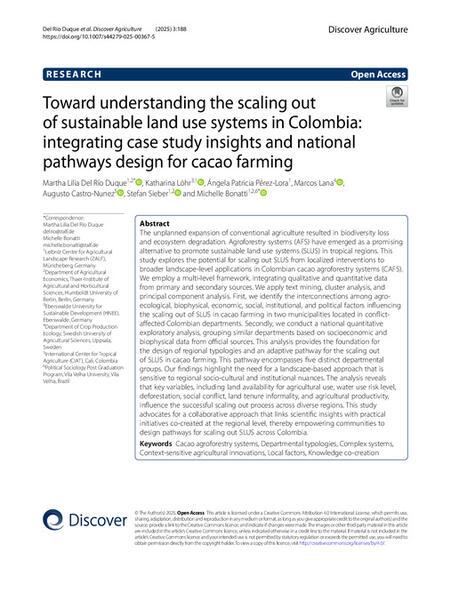
The unplanned expansion of conventional agriculture resulted in biodiversity loss and ecosystem degradation. Agroforestry systems (AFS) have emerged as a promising alternative to promote sustainable land use systems (SLUS) in tropical regions. This study explores the potential for scaling out SLUS from localized interventions to broader landscape-level applications in Colombian cacao agroforestry systems (CAFS). We employ a multi-level framework, integrating qualitative and quantitative data from primary and secondary sources. We apply text mining, cluster analysis, and principal component analysis. First, we identify the interconnections among agro-ecological, biophysical, economic, social, institutional, and political factors influencing the scaling out of SLUS in cacao farming in two municipalities located in conflict-affected Colombian departments. Secondly, we conduct a national quantitative exploratory analysis, grouping similar departments based on socioeconomic and biophysical data from official sources. This analysis provides the foundation for the design of regional typologies and an adaptive pathway for the scaling out of SLUS in cacao farming. This pathway encompasses five distinct departmental groups. Our findings highlight the need for a landscape-based approach that is sensitive to regional socio-cultural and institutional nuances. The analysis reveals that key variables, including land availability for agricultural use, water use risk level, deforestation, social conflict, land tenure informality, and agricultural productivity, influence the successful scaling out process across diverse regions. This study advocates for a collaborative approach that links scientific insights with practical initiatives co-created at the regional level, thereby empowering communities to design pathways for scaling out SLUS across Colombia.

